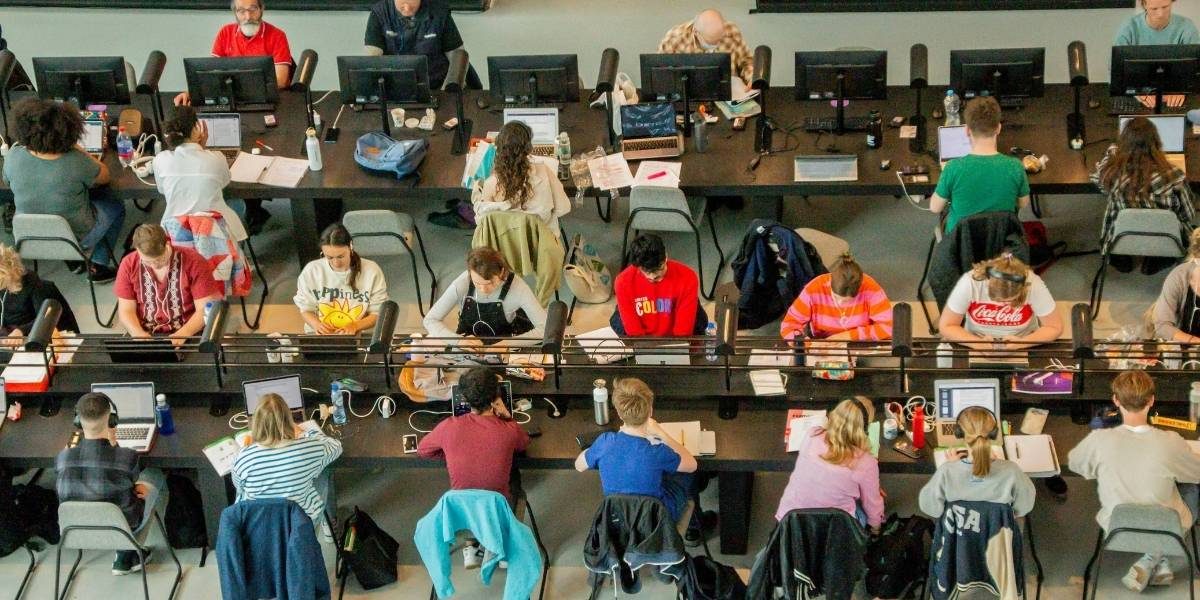How Can Students Choose the Right Job While in School?
Balancing work and studies can be challenging, but selecting the right job while in school offers benefits beyond earning income. The right job provides experience, skill development, and financial support, contributing to both academic and personal growth. Understanding how to make this choice can set students on a path toward success both during and after their education.
Read Also: Everything You Need to Know About the MET Gala
Why Is Choosing the Right Job Important for Students?
Choosing a job that fits a student’s schedule, interests, and career goals impacts their ability to maintain academic performance while gaining valuable experience. The wrong job can lead to stress, fatigue, and poor grades, while the right one can enhance time management, build confidence, and open doors to future opportunities.
Students who work in relevant fields gain early exposure to their industries, helping them build networks and practical skills. Additionally, jobs that offer flexible hours or remote options allow students to better balance work with coursework and extracurricular activities.
What Factors Should Students Consider When Selecting a Job?
Several factors influence the decision to pick the right job while in school. First, students should evaluate their availability and course load. A demanding academic schedule requires a job with flexible hours or part-time shifts. Students must realistically assess how many hours they can work without compromising studies.
Second, interest and relevance matter. Jobs related to a student’s field of study provide hands-on experience that complements classroom learning. This alignment helps clarify career interests and enhances resumes.
Third, location and commute time play a role. Long commutes can reduce study time and increase fatigue, so proximity or remote work options are beneficial.
Lastly, pay and benefits are important, but should be balanced with other priorities like work-life balance and job satisfaction.
How Can Students Find Jobs That Support Their Career Goals?
Finding jobs aligned with career goals requires research and networking. Students should explore internships, campus jobs, and entry-level positions within industries of interest. Career centers at schools often list relevant openings and offer guidance on applications and interviews.
Building relationships with professors, alumni, and professionals can lead to job referrals. Attending career fairs and joining professional clubs or associations also expands opportunities.
Taking part in internships, even unpaid ones, can provide valuable experience and sometimes lead to paid positions. Volunteering in relevant roles is another option to gain exposure and develop skills.
What Are Common Job Options Suitable for Students?
Several job types are popular among students for their flexibility and learning opportunities. Campus jobs, such as library assistants, tutors, or research aides, often accommodate student schedules and provide a supportive environment.
Retail and food service jobs are widely available and help develop customer service and communication skills. However, these jobs can be demanding and may not align with academic interests.
Internships and apprenticeships offer hands-on experience in specific fields. These positions often involve mentorship and training, making them ideal for career development.
Remote work and freelance opportunities are growing, allowing students to manage their time more independently and work from anywhere.
How Can Students Balance Work and Academic Responsibilities?
Balancing work and school requires effective time management and prioritization. Students should create detailed schedules, allocating time for classes, studying, work shifts, and rest. Setting clear boundaries, such as designated study hours, helps maintain focus.
Communication with employers about academic commitments is key. Employers who understand students’ priorities are more likely to offer flexible scheduling.
Students should avoid overcommitting and be willing to adjust work hours during busy academic periods. Self-care, including adequate sleep, nutrition, and relaxation, supports sustained performance.
How Does Working While Studying Impact Personal Development?
Working during school fosters independence, responsibility, and problem-solving skills. Students learn to manage multiple commitments and navigate workplace dynamics, which prepares them for future careers.
Exposure to diverse people and situations builds communication and teamwork abilities. Financial independence gained through work also teaches budgeting and money management.
These experiences contribute to personal growth, helping students develop confidence and resilience.
What Challenges Do Students Face When Working While in School?
While working has benefits, students often face challenges such as fatigue, stress, and limited free time. Juggling deadlines and work shifts can lead to burnout if not managed carefully.
Some students may find it difficult to maintain social connections or participate in extracurricular activities, impacting their overall college experience.
Financial pressures may push students to accept jobs that are less flexible or unrelated to their goals, leading to dissatisfaction or academic compromise.
How Can Students Overcome Challenges of Working While Studying?
To overcome challenges, students should seek support from campus resources, such as counseling and academic advising. These services help with stress management and planning.
Building a support network of family, friends, and mentors provides emotional encouragement. Sharing schedules and commitments helps others understand and assist.
Setting realistic goals and regularly reassessing workload ensures students do not become overwhelmed. If necessary, adjusting work hours or seeking more suitable jobs helps maintain balance.
Why Is Reflecting on Job Experiences Important?
Reflecting on job experiences allows students to evaluate what they have learned and how the job aligns with their future goals. This self-assessment guides future job choices and career planning.
Keeping a record of accomplishments and skills developed helps build a professional portfolio. Reflection also highlights areas for improvement, encouraging continuous growth.
Understanding the impact of work experiences on academic and personal life fosters informed decisions about balancing responsibilities.
Read Also: How to Host the Ultimate Fondue Party: Tips and Recipes
How Can Students Leverage Job Experiences After Graduation?
Job experiences gained while in school often provide a foundation for post-graduate employment. Skills like communication, teamwork, and time management are valuable in any career.
Relevant work experience enhances resumes and sets candidates apart in competitive job markets. Networking connections made through jobs can lead to references and job offers.
Employers appreciate candidates who demonstrate the ability to balance work and academics, showing maturity and dedication.














